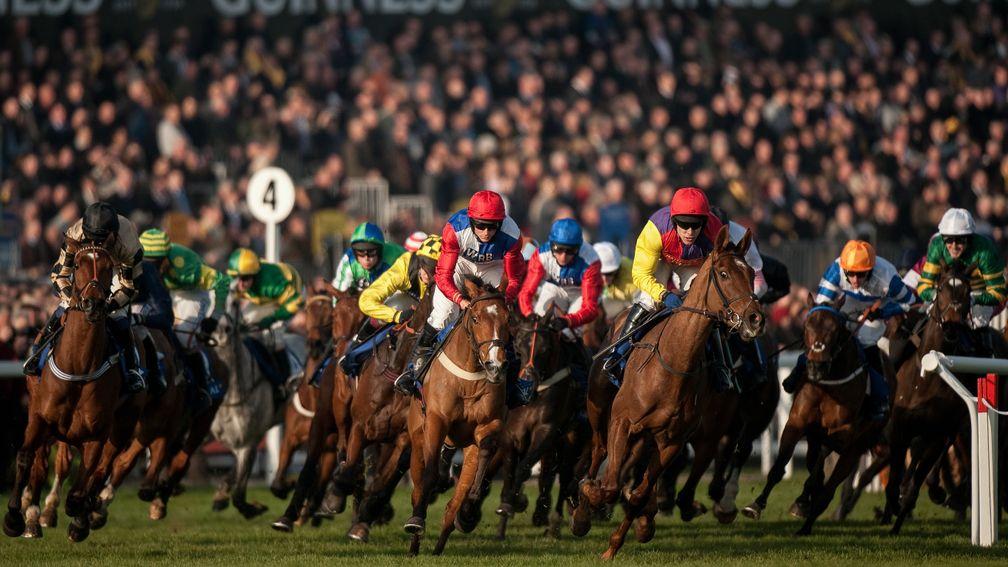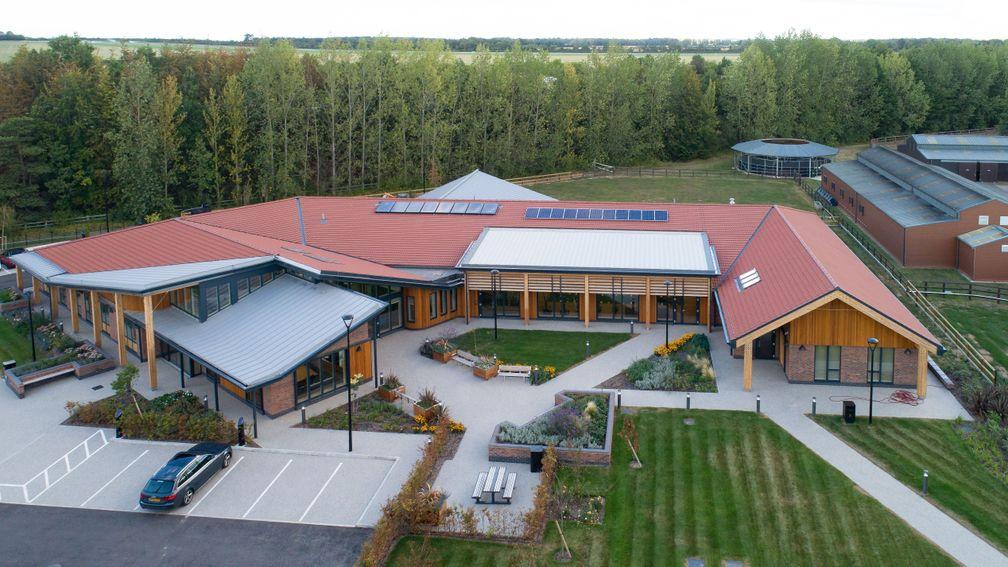Why the Cheltenham Festival is the right time to reflect on 60 years of the Injured Jockeys Fund


The anniversary in most minds next week will be the centenary of the Cheltenham Gold Cup, our most prestigious jumps race. It could be a historic running, as Willie Mullins may become the first trainer to prepare more than one multiple winner; he's already done it with Al Boum Photo and his Galopin Des Champs is a deserved favourite to follow up last year's victory.
But there's another landmark to bear in mind if you're a fan of jump racing. The Injured Jockeys Fund was created 60 years ago in response to life-changing injuries suffered by Tim Brookshaw and Paddy Farrell. Demand for its services has been high ever since and will, of course, remain so for as long as we have horseracing.
Next week will be a good time to keep the charity in your thoughts because, while the festival is the biggest week for all jockeys lucky enough to take part, it is also among the most dangerous. The races that most matter demand the greatest effort and with that comes risk, particularly of misjudged leaps and tired falls.
Risk is not to be regretted. Top-level athletes in every sport put their bodies on the line as they admirably strive to produce the best efforts of which they are capable.
But there obviously needs to be an appropriate response when things go wrong. The IJF and its counterpart Irish Injured Jockeys are there to manage the consequences. Having written occasional newsletters for the IJF over the years, I've become aware of the enormous range of ways in which it cares for jockeys, enabled by decades of support and goodwill from enthusiastic racing fans.
Jockeys get injured at the festival, that's just how it goes. Millie Wonnacott is one of the more recent examples I have in mind, having suffered two fractures to her C1 vertebra when unseated from Kansas City Chief in the Pertemps of 2021. She was sidelined for almost two years as the bones proved frustratingly slow to mend. On discovering she had lost weight during her recovery period, she decided to seek fresh opportunities on the Flat.
I lost track of how many times Ruby Walsh was injured at Cheltenham. It's what happens when you're competing at the business end of every race, asking for everything.
There was the time at the second-last of the RSA when Al Boum Photo rolled on to him, rebreaking the leg which had kept Walsh sidelined most of that winter. Four years before that, he'd been leading a packed field in the Triumph Hurdle when Abbyssial changed his mind in mid-air and came down at the second. When Walsh stood up from that one, he was cradling an arm in a way that let you know he wasn't going to be taking part in any Grand Nationals that spring. Both those falls happened right in front of the packed stands, a vivid reminder for 70,000 people of the sacrifices being made.

Most grimly, of course, there was John Thomas McNamara, paralysed by a broken neck in the Kim Muir of 2013. Cheltenham had been the scene of some of his greatest achievements, most memorably when he conned the tricky Rith Dubh into winning the National Hunt Chase, but his injuries claimed his life three years after that Kim Muir fall.
I'd been given an insight into JT's bravery at the 2012 festival, after he and Dancing Tornado parted ways halfway round the cross-country race. Tom Jenkins, an award-winning photographer with The Guardian, caught a series of shots of Dancing Tornado putting one of his feet down right next to the jockey's unprotected throat. The danger had passed in a fraction of a second. JT, unscathed, said he'd had no idea of his near-miss until he saw the pictures.
"It's all a risk in this game," he told me. "There's no point thinking about it." Then he went out and won another National Hunt Chase on Teaforthree.
Young men and women will always be willing to take on danger in pursuit of glory. For those of us who cheer their efforts, it falls to us to contribute when they need help.
At the IJF's three centres, Oaksey House in Lambourn, Jack Berry House in Malton and Peter O'Sullevan House in Newmarket, they help literally hundreds of jockeys each year, a significant proportion of the total who hold licences. Staff there are adept at the painstaking work of rebuilding strength, flexibility and range of movement, a process which can take months.
Thanks to these centres, all opened within the last 15 years, recovery times have been shortened. But also, their gym facilities give jockeys the chance to be fitter, stronger and more resilient than before, better able to cope with the inevitable blows.
It costs millions each year to run those facilities and the IJF, an independent charity, receives no direct central funding from the sport. If, by the grace of God, you should happen to make a decent score next week and feel like sharing some of your good fortune, the IJF would be well worth considering.
Those centres are also social hubs in the hearts of strong racing communities. Long-retired jockeys will be passing through each of them next week, chatting with staff, reading the Post, watching a bit of racing – staying in touch with their sport. Most of all, they'll be hoping not to see too many new faces showing up on crutches the week after.
This column is exclusive to Members' Club Ultimate subscribers. Members can read more columns by Chris Cook here:
Rishi Sunak's panicked row-back has annoyed those who like a bet - here's how he can make amends
Racing's real fans need more love from courses if we're to keep coming through the gates
Members' Club offer: £10 a month for three months

Subscribe now – use code 3FOR30 and pay just £10 a month for three months when subscribing to Members' Club Ultimate Monthly.
Offer expires 11/03/2024 at 23:59pm. Available to new subscribers purchasing Members' Club Ultimate Monthly using code 3FOR30. First three payments will be charged at £10 (£10 x three months), subscription renews at full monthly price thereafter. Customers wishing to cancel will need to contact us at least seven days before their subscription is due to renew.
Published on 7 March 2024inChris Cook
Last updated 14:07, 7 March 2024
- Time to lavish unqualified praise on Willie Mullins, an unstoppable force unlike any in jump racing history
- I'm feeling a deep sense of loss over the Grand National - and I know many of you feel the same
- Expensive barristers, BHA staffers, trainers and jockeys tied up for hours - all for the sake of a Class 4 handicap
- We're starting to move on from Cheltenham arguments - and that's dangerous if it means the big issue isn't fixed
- Ten months on from the Aintree invasion why have those involved faced no consequences?
- Time to lavish unqualified praise on Willie Mullins, an unstoppable force unlike any in jump racing history
- I'm feeling a deep sense of loss over the Grand National - and I know many of you feel the same
- Expensive barristers, BHA staffers, trainers and jockeys tied up for hours - all for the sake of a Class 4 handicap
- We're starting to move on from Cheltenham arguments - and that's dangerous if it means the big issue isn't fixed
- Ten months on from the Aintree invasion why have those involved faced no consequences?